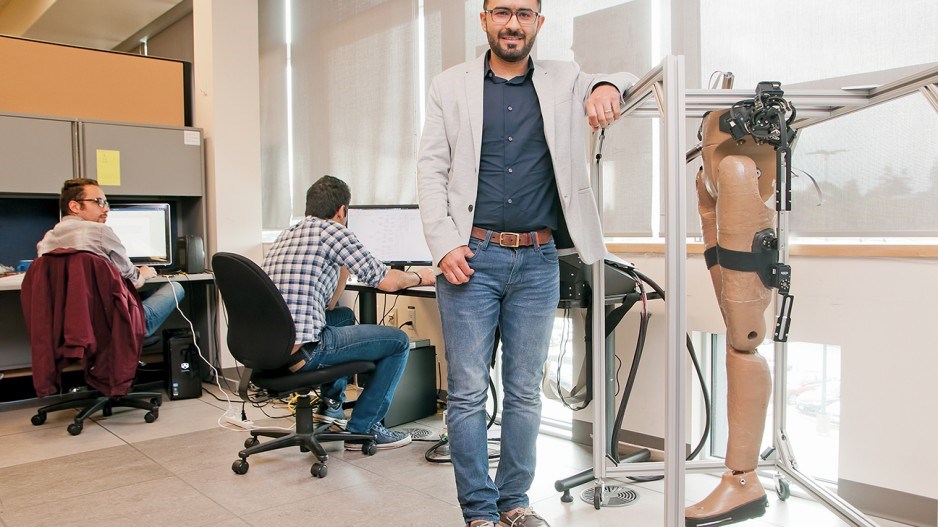What happened: Government agency awards four innovation projects $1.2 million
Why it matters: Ignite program focuses on collaborations between industry, academia
B.C. tech collaborators behind innovations ranging from robotic exoskeletons that help people walk to deploying virtual and augmented reality (VR/AR) headsets that cut costs for businesses are now a little richer.
Government agency Innovate B.C. is distributing $1.2 million in funding to four projects from across the province that see industry and academia working together to solve specific business problems within three years.
The funding, awarded June 17, comes via Innovate B.C.’s Ignite program.
Simon Fraser University Prof. Edward Park, interim director of the School of Mechatronic Systems Engineering, has teamed with industry partner Human in Motion Robotics Inc. on the Exomotion project.
The $300,000 awarded to Exomotion will help fund the development of an exoskeleton for the lower limbs designed to help users get out of wheelchairs.
“When you speak with people with disabilities they are kind of fed up with the wheelchairs and not being able to do normal tasks and not having confidence,” Human in Motion co-founder Soheil Sadeqi told Business in Vancouver in 2017.
“The aim is forgetting about the wheelchair and getting towards a better assistant device for these users.”
TimberOps, a collaboration between VR/AR studio Llamazoo Interactive Inc. and FPInnovations, was also awarded $300,000 for its efforts to develop a platform that can sub in for expensive field trips for silviculture, harvesting and transportation planning.
Meanwhile, Terramera Inc. and SFU School of Computing Science Prof. Martin Ester are developing a computational platform to design antifungal formulations for crop diseases such as wheat leaf rust.
The project is tapping Terramera’s flagship chemistry technology, Actigate, which can be licensed to producers of both natural and synthetic pesticides to improve the efficiency, uptake and performance of the active ingredients in crop protection products.
“We can increase the performance of the materials we spray on farms while dramatically reducing the amount required and reducing the environmental impact,” Terramera CEO Karn Manhas told BIV last September following the company’s US$45-million funding round.
That project, too, was awarded $300,000.
University of Victoria chemistry Prof. Jeremy Wulff and Epic Ventures Inc. also landed $300,000 in funding for a project creating a new class of molecules that could allow any material to be crosslinked.
—With a file from Patrick Blennerhassett




